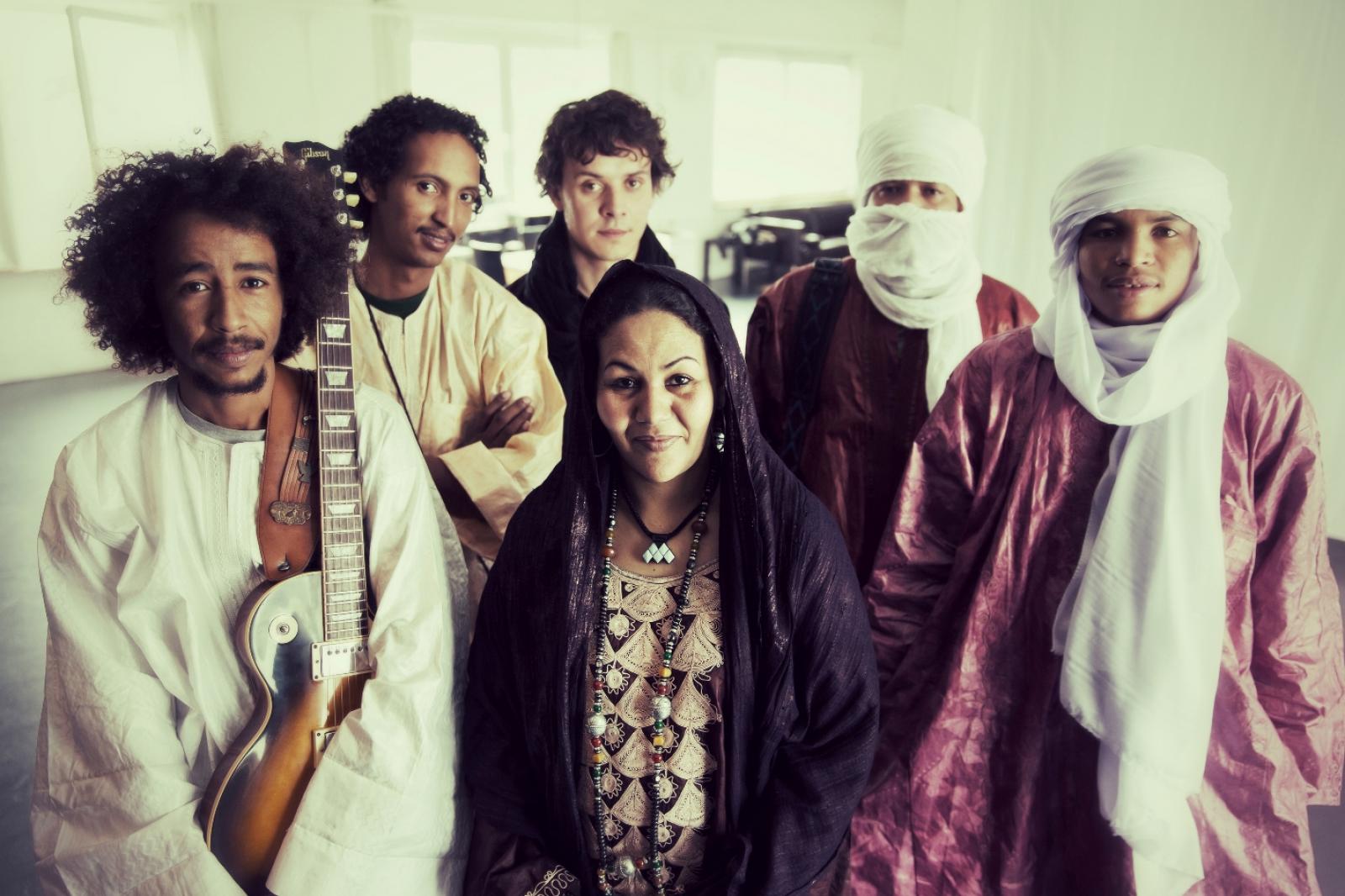
Forbidden desert blues to Riddu!
The music is forced out of Mali, but at Riddu Riđđu there is fortunately space and scene for Mali’s Tamikrest!
Forbids music
In Tamikrest’s homeland Mali ongoing war and presecution has led to a massflight of musicians from the country. The short version of the conflic gives a glimpse of the situation in Mali: In January two years ago a rebellion broke out amongst the Tuaregs in the north of the country. A short time later Northern Mali declared soverignity under the name of Azawad. There reigns chaos and wars between different islamistic groups, wishing to introduce a very strict version of Sharia, islamic law, in the area. In the midst of this chaos has playing music become dangerous and acctually forbidden. Mali has a proud and more than a thousand year old musical tradition. Now it is in order to be destroyed by militant islamists, arguing that the Koran forbids music. There are several examples of armed rebel soldiers threathening musicians, and many has haved their musical instruments taken with a warning that their lives will be next. – It's almost not possible to believe this is happening today, and Riddu Riđđu will push for freedom of speech in music, and we support musicians and composer who are threatened by censorship, says festival director Kirsti Lervoll.
Music can never be silenced
The band Tamikrest was founded in 2006 and is now living in exile in Algeria. There they have better possibilities to fight for their rights, and as a result of political wars and rebellions the band has made its mission to fight through music and not weapons. Their album “Chatma” (2013), meaning «sister», is dedicated to the brave Tuareg women who has provided for – in the bands own words - "both their children's survival and the morals of their fathers and brothers". The band is a coalition of music genres, with a driving blues rock as trade mark. Their lyrical and deeply moral affective texts can be felt in the hearts of its listeners. – I admire Tamikrests ability to publish an album, praised around the world, under such extreme conditions, says Lervoll. She believes Tamikrest will appeal to all who likes the more known Tinariwen, who played at Riddu Riđđu in 2010.
Ousmane Ag Mossa (the band leader of Tamikrest): “We are very happy to perform at Riddu Riđđu Festival. It's important for us to see people fighting (and specially fighting with the arts) to keep alive their culture. We are on the same way with Tamikrest.”
Festival on the move
Festival au Désert – the Festival in the Desert – was until 2012 a big, colourful attraction in Mali, with Tuareg-music as a main element. The extreme islamists in the area wanted to silence all musical expressions, and the festival was directly threatened bu several violent groups. The organizers would however not be stopped that easily. A «Caravan for Peace» with Mali musicians has taken the festival on the move, and toured in countries with safer settings. Riddu Riđđu experienced the Desert festival when it reached Oslo World Music Festival’s stage in November. –There we met musicians from Mali whoms life are threatened, and who cannot go back to their homeland without risking mutilation or death, tells Lervoll. The booking of Tamikrest is the direct result of Riddu Riđđu’s good collaboration with Oslo World Music festival.